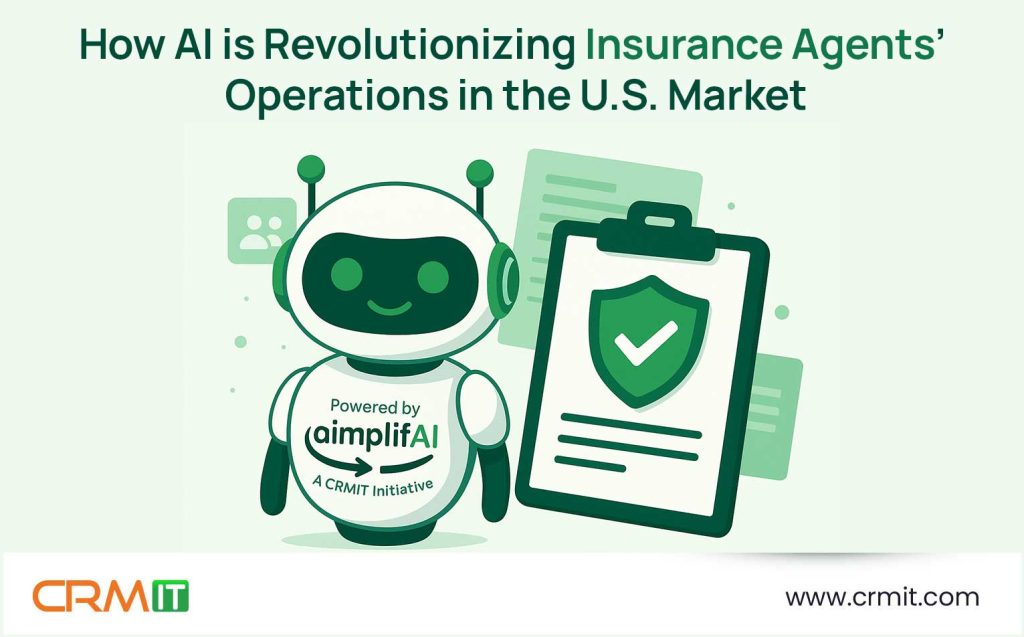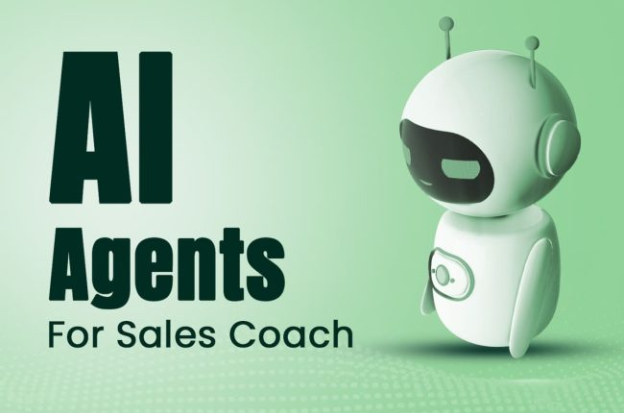How AI is Revolutionizing Insurance Agents’ Operations in the US Market

With the rapidly changing digital era, Artificial Intelligence (AI) is becoming a part of the insurance agents’ business. Applications of AI solutions are transforming the agents’ business through the automation of daily tasks, improving customer interaction, and speeding up policy sales. Insurance agents, especially in the U.S. market, are adapting AI to simplify business and make wiser decisions. This is a blog where the author writes about how AI is shaping the future of insurance and how agents must consider the use of AI-based solutions in their company. The Role of AI in Insurance
The Role of AI in Insurance
Artificial intelligence has come a long way in the past few years, offering insurance professionals new and innovative methods of working more efficiently and productively. Agents can take advantage of huge amounts of data, develop actionable insights, and make data-driven decisions with AI assistance. An old business of backbreaking work is being reengineered by AI into a future of automation, data-driven decision-making, and enhanced customer service.
To insurance brokers, AI is a break-through moment to revolutionize some aspects of their business. From automating lead generation to more effective client engagement, AI-based solutions are designed to drive expansion and increase productivity.
AI for Insurance Agents: Streamlining Lead Generation
Perhaps the most important responsibility of an insurance agent is creating leads. Securing great leads and accompanying them through the sale can be painful and tiresome. Artificial intelligence today is making it more convenient than ever before to find, qualify, and connect with potential clients, eventually expanding the lead-to-policyholder conversion ratio.
The ideal AI for American insurance brokers is trained to guide lead generation through analyzing and processing customer data. AI applications possess the ability to forecast lead potential to become customers through browsing history, demographics, and past interactions. Prediction analytics through these methods allow agents to access quality leads, thus maximizing their overall sales potential.
Also, AI lead generation software can be embedded into an individual’s own Customer Relationship Management (CRM) software to monitor leads more effectively and follow up on engaged conversations. With AI software learning constantly and improving at it, they improve in matching the right person with the right message of marketing, increasing engagement rates.
Applying AI to Automated Client Communication
Good communication forms the base of any good insurance firm. According to this, the time insurance brokers have taken answering many inquiries from customers, seeking quotes, and addressing the grievances of clients is immense. AI technology is helping the insurers to automate most of the communication process. This leaves them with more time for more complex work.
Virtual chat robots and AI-driven personal assistants can provide instantaneous responses to clients regarding policy details, coverages, or claims status. The robots do not require resting time and can operate 24/7 for purposes of ensuring that clients are replied to at any time they prefer. AI systems can also provide automatic reminders for policy renewal, payment, and other important processes to make the interaction seamless.
This automation not only increases client satisfaction—it increases the agent’s ability to service more clients without compromising on any degradation in the level of service. By automating repetitive work, the agents are more equipped to develop richer and more empathetic relationships with their clients.
AI-Powered Personalization: Data to Decision
The ability of AI to process big amounts of data in real-time enables insurance agents to make more informed decisions. Decision transformation is what lies at the core of data analytics, and it enables agents to suggest policies that are customized for a person’s particular needs and circumstances.
With the help of AI tools, insurance agents are able to analyze their customers’ data, including past buys, interests, and even social actions, in order to personalize their services and messages. It is data-led and leads to better segmentation of the customers, ultimately translating into more effective and focused marketing campaigns. Agents are able to offer highly personalized products and services since they know what every customer needs as an individual, so the likelihood of conversion arises.
With this, agents can also make more, more timely decisions using AI. In analyzing data in real-time, AI systems identify impending trends, impending perils, and possibilities and empower the agents to react promptly and with decision. In US insurance, where customer requirements and regulations continually change, being capable of having AI tools offer insight in real-time can be the agent’s differentiator for competitiveness.
Boosting Policy Sales with AI

AI technology is not only helping agents acquire new clients but is also playing a key role in increasing policy sales. In fact, the strongest impact AI makes on sales is predictive analytics, which identifies cross-sell and upsell opportunities. Based on existing policyholder information, AI systems are able to judge that a customer would need more coverage, for example, adding life insurance to an existing auto policy. This cycle of prediction enables agents to call clients with the right offer at the right time. AI technology is also growing the capacity for automating quotes. For example, as a potential client requests a quote online, AI can automatically review their details and generate customized policy options without agent-written quotes. It not only speeds up the process but enhances the client experience with faster responses.
Furthermore, AI tools are increasingly capable of automating the quoting process. For example, when a potential client fills out an online form requesting a quote, AI can instantly analyze their data and generate customized policy options, eliminating the need for agents to manually create quotes. This not only speeds up the process but also enhances the client’s experience by providing them with faster responses.
By eliminating redundant procedures and leveraging AI to forecast client requirements, insurance brokers have the ability to dedicate time to more value-adding activities such as building relationships with clients and selling.
Overcoming Challenges and Embracing Change
Even though AI is highly beneficial, it is encountering some kind of problem when it comes to integrating such solutions into an insurance agent’s workflow. Agents won’t implement new technology in the first place or, on the other hand, get overwhelmed by the complexity of AI software. But since AI is being updated regularly and is being made more user-friendly, such problems are being diminished day by day.
To make their company a success in AI integration, agents would first determine areas in which automation would bear them the greatest fruit, i.e., policy management, client interaction, and lead generation. Choosing the right AI lead generation software and other AI tools that best suit their specific business requirements can help them make the shift.
Apart from that, the agents should be trained and re-skilled to be capable of fully utilizing the maximum capacity of AI. To be AI-first, wherein technology informs decision-making and business processes, is a necessity to be a market leader in the competitive insurance industry.
Conclusion
AI is transforming agents’ insurance business, be it lead generation, policy and customer communication, or sales. AI solutions enable America’s agents to work cost-effectively, make optimal decisions, and offer more personalized services to customers. As AI continues to develop, it will continue to shape the future of the insurance industry.
In order to compete, insurance agents are no longer able to rely on the “it’s cool” premise of utilizing AI tools—now it is a necessity. By implementing AI in their business and data to decision strategies, insurance professionals have the capability to boost productivity, expand their customer base, and ultimately make sales.
If a veteran agent or beginning in the business, the future of insurance is all about artificial intelligence. Agents are able to utilize the right technology in their efforts toward taking their business operations to the next level and pursue new areas of expansion.